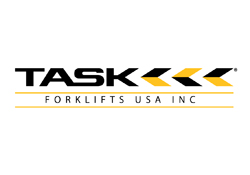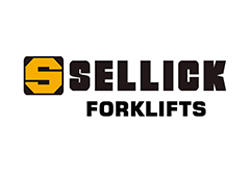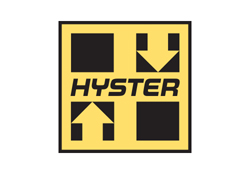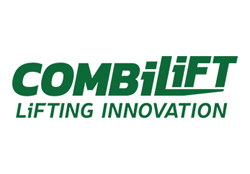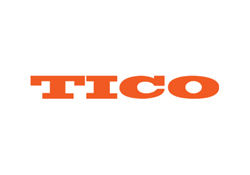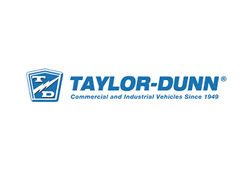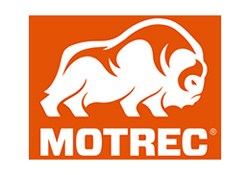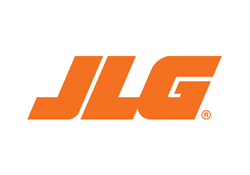How to Choose the Right Pallet Jack Rental for Your Warehouse Operations
In the fast-paced world of warehouse operations, selecting the appropriate equipment is crucial for efficiency and productivity. One of the most versatile tools in this environment is the pallet jack. According to industry reports, the global pallet jack market is projected to expand significantly, with a compound annual growth rate (CAGR) of 4.3% from 2021 to 2026. This rise underscores the importance of choosing the right pallet jack rental to meet your operational needs. With various types, sizes, and features available, understanding how to navigate this selection process can directly impact your warehouse's performance. By assessing factors such as load capacity, maneuverability, and maintenance requirements, businesses can make informed decisions that lead to optimized workflows and enhanced safety. Ultimately, investing time in the right pallet jack rental can translate to long-term gains in productivity and operational success.

Understanding Different Types of Pallet Jacks Available for Rent
When selecting a pallet jack for your warehouse operations, understanding the different types available for rent is crucial. There are manual and electric pallet jacks, each catering to specific needs.
 Manual pallet jacks are operated by hand and are ideal for light to moderate loads, offering lower costs and maintenance. Conversely, electric pallet jacks are better suited for heavy loads and extensive operations, providing greater efficiency and reducing physical strain on workers.
Manual pallet jacks are operated by hand and are ideal for light to moderate loads, offering lower costs and maintenance. Conversely, electric pallet jacks are better suited for heavy loads and extensive operations, providing greater efficiency and reducing physical strain on workers.
Tip: Consider the weight capacity required for your daily operations. If you frequently move heavy items, investing in an electric pallet jack may save you time and improve safety.
Another important factor is the operational environment. For narrow aisles or congested areas, a compact or narrow pallet jack will ensure your team can maneuver efficiently. On the other hand, wider models are suitable for more open spaces.
Tip: Assess your warehouse layout before renting a pallet jack to optimize space and improve workflow efficiency. It can also be beneficial to speak with rental experts to find a model that best fits your unique operational needs.
Key Factors to Consider When Selecting a Pallet Jack Rental
When selecting a pallet jack rental for your warehouse operations, it's crucial to consider the specific tasks you'll be performing. Start by evaluating the weight capacity of the pallet jack. Different models are designed to handle various loads, so ensure that the jack can efficiently accommodate your heaviest items without risking damage or safety. Additionally, consider the dimensions of the pallets you'll be moving. A jack that's too large or too small can hinder productivity and make operations less efficient.
Another key factor to consider is the environment in which the pallet jack will be used. If your warehouse has limited space or narrow aisles, a compact or electric pallet jack might be more suitable. On the other hand, for larger areas that require frequent lifting and lowering of heavy loads, a heavy-duty hydraulic model may be necessary. Assessing your warehouse layout and understanding the moveability requirements will help guide your choice. Finally, don't overlook operational comfort and ease of use, as these features can significantly impact productivity and reduce workplace fatigue.
Warehouse Operations - Pallet Jack Rental Considerations
Cost-Effectiveness: Analyzing Rental vs. Purchase of Pallet Jacks
When it comes to warehousing operations, deciding whether to rent or purchase pallet jacks can significantly impact your budget and efficiency. The cost-effectiveness of rental options often makes them an attractive choice for many businesses. Renting a pallet jack provides immediate access to the latest models and technology without the steep upfront costs associated with purchasing. This can be especially useful for companies that experience fluctuating demands or seasonal spikes in operations. By opting for rental, warehouses can allocate more resources to other critical areas while maintaining the flexibility to scale equipment needs as required.

Additionally, rental agreements typically include maintenance and repair services, which can further enhance cost efficiency. Without the burden of upkeep, companies can avoid unexpected expenses that arise from owning and maintaining equipment. This approach allows warehouse managers to stay focused on core operations and productivity, rather than on logistical challenges associated with ownership. Ultimately, careful analysis of rental versus purchase can reveal that renting pallet jacks not only supports operational needs but also aligns with budgetary constraints, thus providing a strategic advantage in a competitive market.
Safety Features and Maintenance: Ensuring Operational Efficiency
When selecting a pallet jack rental for your warehouse operations, safety features and maintenance capabilities should be at the forefront of your decision-making process. Modern pallet jacks come equipped with various safety enhancements, such as ergonomic designs, limited lifting heights, and integrated velocity control to reduce the risk of accidents while handling heavy loads. Ensuring that your rented equipment meets these safety standards can significantly protect your workforce and streamline operational efficiency.
Moreover, regular maintenance is paramount to minimizing downtime and maximizing safety. Many organizations are moving toward predictive maintenance strategies that utilize advanced technology to anticipate equipment failures before they occur. This proactive approach not only helps maintain the functionality of the pallet jacks but also reduces overall costs associated with repairs and replacements. As companies increasingly recognize the value of preventive maintenance, incorporating these principles into your pallet jack rental strategy can lead to smoother operations and enhanced productivity, ultimately supporting your warehouse's success.
Maximizing Warehouse Productivity with the Right Pallet Jack Choice
Choosing the right pallet jack is crucial for maximizing warehouse productivity, especially as demand for efficient material handling continues to rise. With the surge in eCommerce and increasing expectations for rapid order fulfillment, selecting equipment that complements your warehouse operations can significantly enhance productivity. For instance, reports indicate that effective material handling can improve operational efficiency by up to 30%, underscoring the importance of investing in the right tools.
When evaluating pallet jacks for your warehouse, consider these tips: First, assess the specific needs of your operations. Will you be handling heavier loads or working in cramped spaces? Electric pallet jacks may be more suitable for heavier goods, while manual jacks can be effective for lighter loads. Second, prioritize models that incorporate the latest technology, such as lithium-ion batteries, which can offer longer run times and faster charging. This can minimize downtime and keep your operations running smoothly.
Finally, keep an eye on trends in cold storage requirements. As the demand for cold and frozen storage escalates, choosing pallet jacks that are designed for cold environments can help streamline operations in warehouses dealing with temperature-sensitive goods. By carefully selecting the right pallet jack, you can ensure that your warehouse not only meets current demands but also prepares for future challenges in an evolving industry.
How to Choose the Right Pallet Jack Rental for Your Warehouse Operations
| Pallet Jack Type | Load Capacity (lbs) | Fork Length (inches) | Turning Radius (inches) | Suitable for Aisle Width (inches) | Rental Price per Day ($) |
|---|---|---|---|---|---|
| Manual Pallet Jack | 5,500 | 48 | 56 | 78 | 25 |
| Electric Pallet Jack | 6,000 | 48 | 52 | 80 | 45 |
| Heavy-Duty Pallet Jack | 8,000 | 60 | 64 | 86 | 60 |
| All-Terrain Pallet Jack | 5,500 | 48 | 50 | 75 | 55 |
Related Posts
-

Future Innovations in Pallet Jack Rentals Shaping Global Supply Chains
-
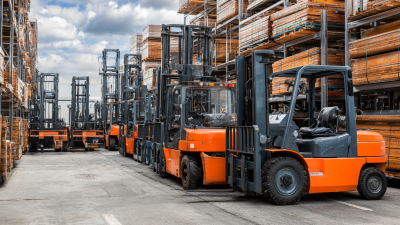
7 Secrets to Finding the Best Forklift Lease Deals for Your Business
-
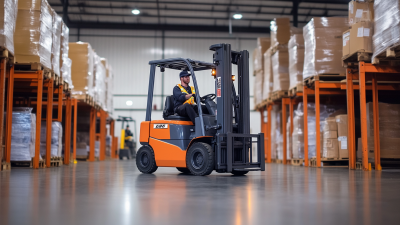
Top 10 Reasons Global Buyers are Choosing Forklift Leasing Over Purchasing in 2023
-
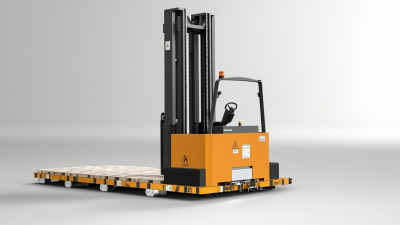
Embracing Innovation in 2025 How to Choose the Best Pallet Lifter for Your Supply Chain
-

Unlocking Global Opportunities: Discover the Latest in Aerial Lift Rentals at the 137th Canton Fair!
-

Safety Regulations in Aerial Lift Rental: A Complete Guide to Best Practices
